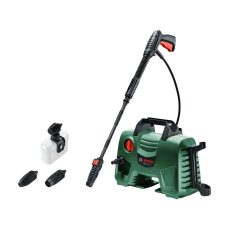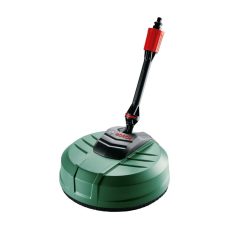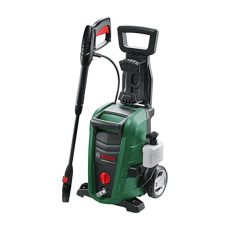Pressure Washer: Power, Efficiency, and Versatility for Cleaning Tasks
A pressure washer is an essential tool for tackling a wide range of cleaning tasks, from residential to industrial applications.Whether you need a high-pressure washer for tough jobs or a compact electric one for everyday use, these machines deliver powerful cleaning. With options like gas, hot water, and portable washers, you can find the ideal model for your needs.
For home pressure washers, an electric power washer or cordless pressure washer provides easy-to-use solutions for cleaning driveways, decks, vehicles, and more. Industrial pressure washers offer robust cleaning performance for larger, tougher tasks. Whether you need to remove grime from commercial surfaces or clean delicate outdoor furniture, there is a pressure washer machine designed for your needs.
Electric high-pressure washers like the Bosch pressure washer or Makita pressure washer are perfect for efficient, quiet cleaning. For larger tasks, a gasoline pressure washer offers high mobility and power, while hot water pressure washers are excellent for cleaning grease and stubborn stains. Cordless power washers are ideal for portable, on-the-go cleaning.
Key Features
- High Power Pressure Cleaning: Equipped with high PSI ratings, high-pressure electric pressure washers or gas-powered pressure washers provide the power to clean large areas quickly and effectively.
- Versatility: Hot water pressure washers are great for tougher stains, while cold water pressure washers handle regular cleaning tasks.
- Convenient Mobility: Portable pressure washer or cordless pressure washer offer the freedom to clean anywhere, whether at home or on a job site.
- Durable and Reliable: Commercial pressure washer are designed for continuous use and offer long-lasting performance.
- Multiple Attachments: Pressure washer nozzles, pressure washer wands, and spray guns can be interchanged to suit different cleaning needs.
- Easy Storage: Models with a retractable hose reel keep hoses and cables neatly stored and easy to manage.
Benefits
- Time-Saving: Cleaning with a pressure washer is far faster and more efficient than traditional methods.
- Effective Cleaning:These washers remove dirt, mold, grease, and tough stains from surfaces like driveways, patios, and vehicles.
- Versatility:From commercial hot water washers to portable models, there’s a pressure washer for every task.
- Energy Efficient: Electric pressure washer are energy-efficient options, saving both time and resources.
- Cost-Effective: Investing in a power washer eliminates the need for hiring professional cleaning services.
Safety Considerations
- Wear Protective Gear: Always use safety goggles, gloves, and sturdy footwear when operating a pressure washer.
- Check for Leaks: Ensure that the hose, connections, and nozzles are secure before starting your pressure washer machine.
- Use the Right Pressure Setting: Adjust the pressure washer pressure to prevent damage to surfaces and avoid personal injury.
- Proper Storage: Store your electric high-pressure washers and gas power washers in dry, cool conditions to maintain performance.
- Keep Water Flowing: Never run your pressure washer without water flowing through it, as it can damage the motor or pump.




